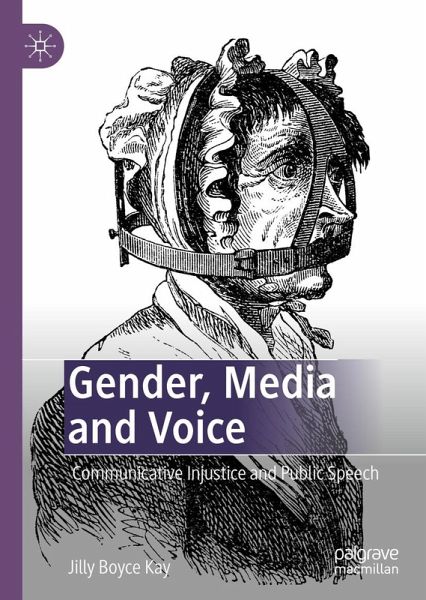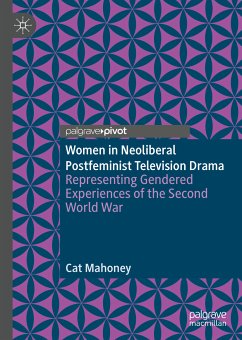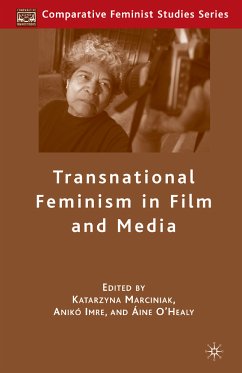
Gender, Media and Voice (eBook, PDF)
Communicative Injustice and Public Speech
Versandkostenfrei!
Sofort per Download lieferbar
68,95 €
inkl. MwSt.
Weitere Ausgaben:

PAYBACK Punkte
34 °P sammeln!
This book explores the increasing imperatives to speak up, to speak out, and to 'find one's voice' in contemporary media culture. It considers how, for women in particular, this seems to constitute a radical break with the historical idealization of silence and demureness. However, the author argues that there is a growing and pernicious gap between the seductive promise of voice, and voice as it actually exists. While brutal instruments such as the ducking stool and scold's bridle are no longer in use to punish women's speech, Kay proposes that communicative injustice now operates in much mor...
This book explores the increasing imperatives to speak up, to speak out, and to 'find one's voice' in contemporary media culture. It considers how, for women in particular, this seems to constitute a radical break with the historical idealization of silence and demureness. However, the author argues that there is a growing and pernicious gap between the seductive promise of voice, and voice as it actually exists. While brutal instruments such as the ducking stool and scold's bridle are no longer in use to punish women's speech, Kay proposes that communicative injustice now operates in much more insidious ways. The wide-ranging chapters explore the mediated 'voices' of women such as Monica Lewinsky, Hannah Gadsby, Diane Abbott, and Yassmin Abdel-Magied, as well as the problems and possibilities of gossip, nagging, and the 'traumatised voice' in television talk shows. It critiques the optimistic claims about the 'unleashing' of women's voices post-#MeToo and examines the ways that women's speech continues to be trivialized and devalued. Communicative justice, the author argues, is not about empowering individuals to 'find their voice', but about collectively transforming the whole communicative terrain.
Dieser Download kann aus rechtlichen Gründen nur mit Rechnungsadresse in A, B, BG, CY, CZ, D, DK, EW, E, FIN, F, GR, HR, H, IRL, I, LT, L, LR, M, NL, PL, P, R, S, SLO, SK ausgeliefert werden.












